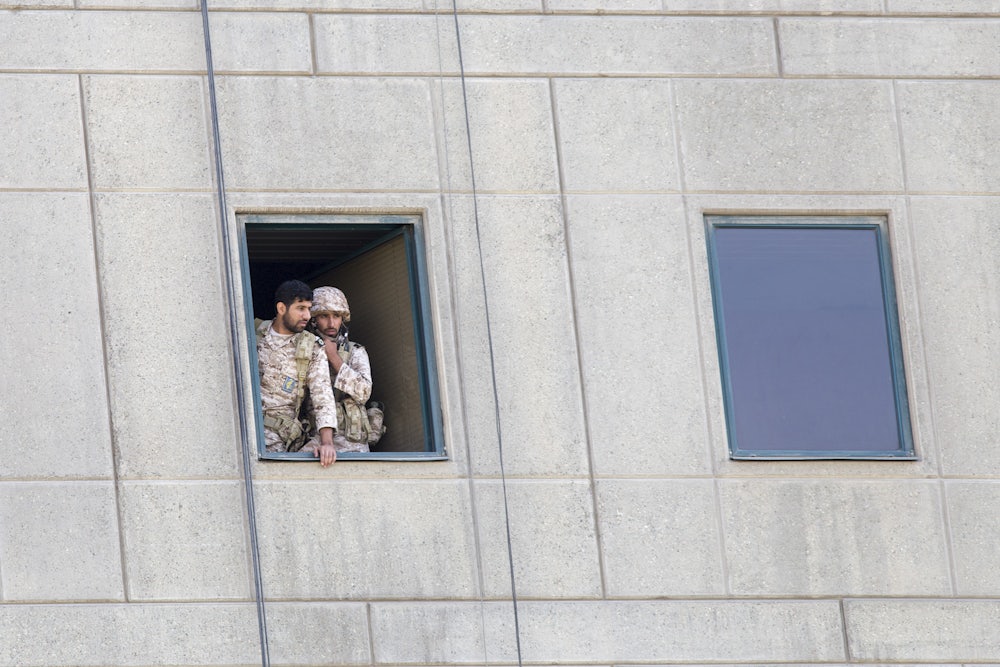The Islamic State has claimed responsibility for an audacious terrorist attack in Tehran, Iran, that has left at least 12 people dead and 42 wounded. This was an assault not only on civilians, but on two pillars of the state itself: the national parliament and the shrine of Ayatollah Khomeini, who founded the Islamic Republic in the 1979 revolution. It is the first time that ISIS, a Sunni group whose ostensible goal is to carve out a caliphate in Iraq and Syria, has carried out an attack on Iranian soil.
Iran’s Revolutionary Guards are already blaming Saudi Arabia, a country that has been a source of funding for ISIS and other Sunni terrorist groups throughout the region. Whether the Saudis were directly involved in the attack is unknown, but it hardly matters, since Iran will view it as Saudi aggression. Tensions between Saudi Arabia and Iran, which have long jostled for supremacy in the Middle East, are in danger of rapidly escalating.
These developments are the latest aftershock from what is increasingly being seen as a seismic disruption to the balance of power in the Middle East: Trump’s bear hug of Saudi Arabia last month, which gave the kingdom a green light to take action against its enemies. Just this week, Saudi Arabia, joined by its Sunni allies, cut off ties to Qatar, an important American ally that is home to a large American military base. Trump responded by encouraging the Saudis even further, tweeting that the alienation of Qatar “will be the beginning of the end to the horror of terrorism!” (Qatar indeed supports terrorist groups—including ISIS—part of its battle for regional influence with Saudi Arabia.)
The Revolutionary Guards, for their part, are stressing the Trump-Saudi connection. “This terrorist attack happened only a week after the meeting between the U.S. president and the backward leaders [in Saudi Arabia] who support terrorists. The fact that Islamic State has claimed responsibility proves that they were involved in the brutal attack,” they said in a statement. Wedding the U.S. and Saudi Arabia works in the Guards’ favor, since they are a hardline element that opposes the 2015 nuclear deal that Iran’s more moderate president, Hassan Rouhani, reached with Barack Obama. Trump himself has promised to rip up the agreement, which Saudi Arabia also opposes.
If the deal collapses, we now have a sense of how Iran’s enemies might respond. It won’t be pretty.
